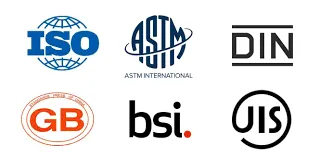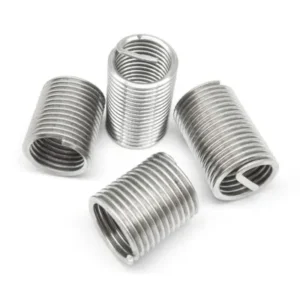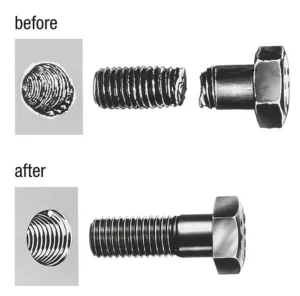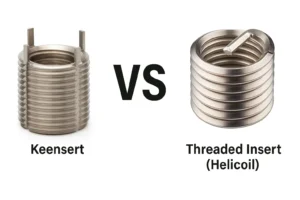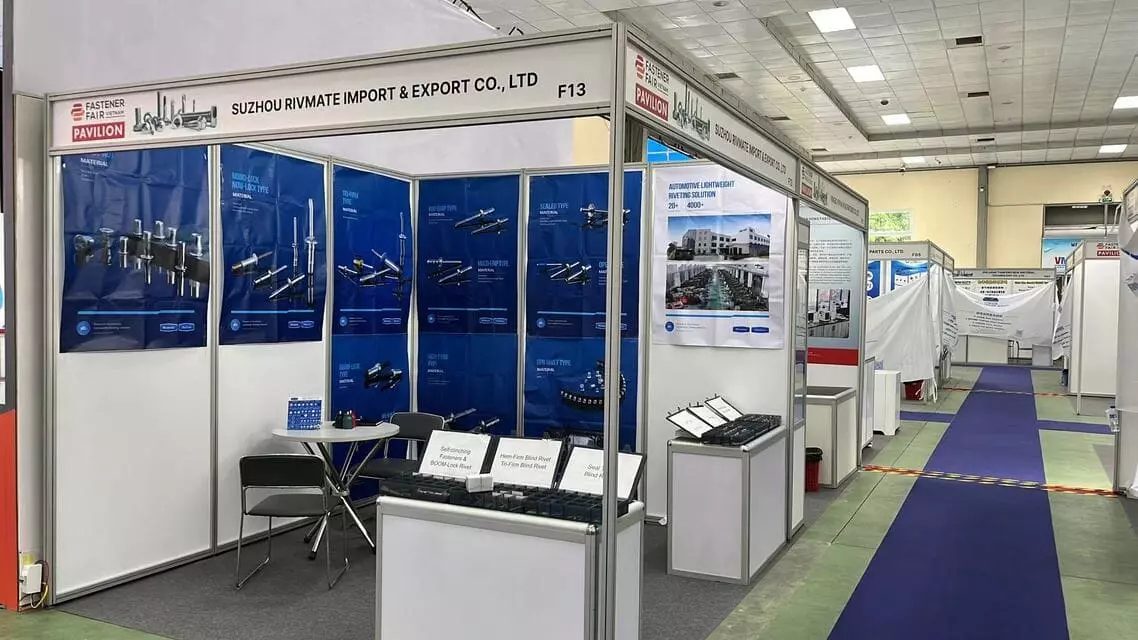What is Rivet Nut ISO Standard?
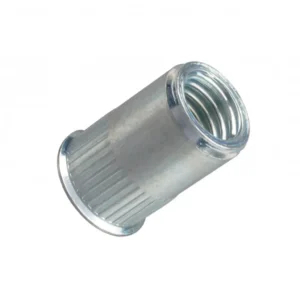
Leading Rivet Nut Manufacturer and Supplier in China

When working with rivet nuts, understanding their standards is crucial to ensure quality and compatibility across different applications. One important standard is the ISO standard, which defines the specifications for manufacturing and testing rivet nuts to ensure they meet global performance and reliability expectations. In this blog, we’ll explore what is Rivet Nut ISO Standard and why it matters. We’ll discuss the key aspects of the ISO standard, helping you understand how these standards impact the performance and longevity of rivet nuts in various industries.
Table of Contents
What is ISO Standard?

The ISO standard refers to a set of internationally recognized guidelines and specifications developed by the International Organization for Standardization (ISO). ISO is a non-governmental organization that establishes standards to ensure quality, safety, efficiency, and interoperability across various industries and sectors worldwide.
ISO standards cover a wide range of areas, including product specifications, manufacturing processes, safety procedures, and environmental practices. These standards are intended to ensure that products and services are consistently produced and meet customer expectations, as well as compliance with legal and regulatory requirements.
For example, ISO standards for quality management (such as ISO 9001) and environmental management (such as ISO 14001) are commonly adopted by organizations globally to improve operational efficiency, reduce risks, and increase customer satisfaction.
What is Rivet Nut ISO Standard?
The Rivet Nut ISO standard refers to a set of internationally recognized specifications developed by the International Organization for Standardization (ISO) that govern the design, manufacturing, and performance of rivet nuts (also known as jack nuts or blind rivet nuts). These standards ensure that rivet nuts are produced to a consistent, reliable quality, providing strength, durability, and safety in various applications.
The primary ISO standard for rivet nuts is ISO 15848, which deals with “Industrial fasteners — Rivet nuts.” It covers the general characteristics, dimensions, and mechanical properties of rivet nuts used in mechanical and structural applications.
1. Thread Sizes
The ISO standard for rivet nuts specifies the dimensions and thread sizes that are commonly used in various applications. Thread sizes for rivet nuts typically follow the international metric (M) or imperial (UNC/UNF) systems. These standard thread sizes are critical for ensuring compatibility with the corresponding bolts, screws, or fasteners used in assemblies.
a. Metric Thread Sizes (M):
The ISO standard typically includes the following metric thread sizes for rivet nuts:
| Thread Size | Nominal Diameter (mm) | Pitch (mm) |
| M3 | 3 | 0.5 |
| M4 | 4 | 0.7 |
| M5 | 5 | 0.8 |
| M6 | 6 | 1 |
| M8 | 8 | 1.25 |
| M10 | 10 | 1.5 |
| M12 | 12 | 1.75 |
| M16 | 16 | 2 |
| M20 | 20 | 2.5 |
| M24 | 24 | 3 |
b. Imperial Thread Sizes (UNC/UNF):
Rivet nuts are also available in imperial thread sizes, which are commonly used in markets like the United States. These sizes are measured in inches and typically include:
| Thread Size | Nominal Diameter (inches) | Thread Pitch (TPI – Threads Per Inch) |
| 1/4″ | 0.250″ | 20 (UNC) / 28 (UNF) |
| 5/16″ | 0.3125″ | 18 (UNC) / 24 (UNF) |
| 3/8″ | 0.375″ | 16 (UNC) / 24 (UNF) |
| 1/2″ | 0.500″ | 13 (UNC) / 20 (UNF) |
| 5/8″ | 0.625″ | 11 (UNC) / 18 (UNF) |
2. Material
The ISO standard for rivet nuts also specifies the materials commonly used for manufacturing these fasteners. Manufacturers produce rivet nuts from various metals and alloys to meet the requirements of different environments, loads, and applications.
- Rivet nuts are strong, durable, and cost-effective, making them widely used in industrial applications. Manufacturers can galvanize or coat them for corrosion resistance.
- Applications: Automotive, construction, machinery, general industrial applications.

- High resistance to corrosion, making it ideal for harsh environments. Offers good strength and durability, especially in marine and chemical environments.
- Applications: Marine, chemical, food processing, outdoor applications
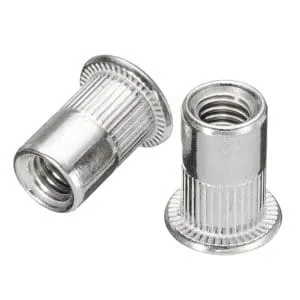
- Lightweight, corrosion-resistant, and has good thermal conductivity. However, it has lower tensile strength compared to steel or stainless steel.
- Applications: Aerospace, automotive lightweighting, electronics, and applications where weight is a critical factor.
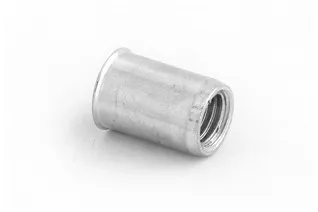
- Excellent conductivity and corrosion resistance. Offers moderate strength and is easy to form.
- Applications: Electrical systems, electronic devices, and other conductive applications.

3. Strength and Durability
The ISO standard for rivet nuts outlines requirements for material properties, load-bearing capacity, and performance under different conditions to ensure their reliability in structural and mechanical assemblies.
- Tensile strength refers to the maximum load a rivet nut can withstand before it fails (breaks or deforms). The ISO standard specifies minimum tensile strength for different materials and sizes.
- Example: A typical steel rivet nut may have a tensile strength of 300 MPa to 800 MPa, depending on its material grade, while stainless steel rivet nuts may have slightly lower tensile strength but better resistance to corrosion.
Shear Strength
- Shear strength is an important property of rivet nuts, especially in applications where they experience shearing forces like vibrations, impacts, or lateral stresses.
- Rivet nuts that meet ISO standards are designed to support typical load conditions in automotive, aerospace, and industrial uses with sufficient shear strength.
Do You Have Any Questions?
Let Us Solve Your Problem
Why choose rivet nuts that meet ISO standards?
1. Consistency and Quality Assurance:
ISO standards ensure that rivet nuts meet specific manufacturing and performance requirements, resulting in consistent quality. By using ISO-standard rivet nuts, manufacturers can be confident in the reliability and durability of their fasteners, reducing the risk of failure and ensuring high-quality finished products.
2. Improved Performance:
ISO-standard rivet nuts are engineered to provide optimal performance, with considerations for strength, fatigue resistance, and durability in different environments. Using these rivet nuts ensures that the fasteners will perform reliably under various load conditions, vibrations, and temperatures, improving the overall integrity of the structure.
3. Enhanced Safety
ISO standards include rigorous testing procedures that ensure rivet nuts are capable of withstanding specific forces and conditions. This level of testing reduces the likelihood of fastener failure, enhancing the safety of the application, particularly in critical industries such as aerospace, automotive, and construction.
4. Global Recognition:
ISO standards are internationally recognized and widely adopted, ensuring that rivet nuts manufactured to these standards are suitable for global markets. This recognition simplifies trade, ensures compliance with international regulations, and guarantees consistent quality across different regions.
5. Compliance with Industry Regulations:
Many industries require compliance with specific standards for fasteners, especially in sectors like aerospace, automotive, and manufacturing. Using ISO-standard rivet nuts ensures that products meet regulatory requirements, simplifying the certification process and avoiding penalties for non-compliance.
What is the Difference Between ISO Standard Rivet Nuts and Other National Standards (e.g. DIN, JIS)?
The difference between ISO standard rivet nuts and other national standards (e.g., DIN and JIS) mainly lies in the origin, scope, and specific requirements set by each standardization body:
1. Scope and Applicability
ISO (International Organization for Standardization): ISO is an international body that creates and publishes globally recognized standards for a wide range of products and processes. It uses its standards worldwide to promote consistency across countries and industries.
DIN (Deutsches Institut für Normung): DIN is the German national standards organization. It primarily uses its standards in Germany and other European countries. DIN standards often provide more detailed or specific requirements tailored to European needs.
JIS (Japanese Industrial Standards): JIS is the national standards organization in Japan. It ensures that products manufactured in Japan meet specific requirements, often catering to Japanese industries and market needs.
2. Materials and Performance
- ISO Rivet Nuts: ISO standards generally specify the material properties, mechanical performance, and testing requirements for rivet nuts, focusing on global compatibility and performance under various environmental conditions.
- DIN Rivet Nuts: DIN standards may emphasize certain material properties or testing procedures that align with European safety, environmental, and performance requirements. There may also be differences in how corrosion resistance, fatigue strength, or load ratings are defined.
- JIS Rivet Nuts: JIS standards may place particular importance on factors relevant to Japanese industries, such as earthquake resistance in construction or high-temperature tolerance in manufacturing. The material and performance criteria can differ to meet specific industrial needs in Japan.
3. Compliance and Certification
ISO Rivet Nuts: Global trade often requires ISO standards for compliance with international regulations. Manufacturers produce products made to ISO standards, ensuring acceptance in many markets worldwide and guaranteeing compatibility with international trade practices.
DIN Rivet Nuts: European markets typically require or prefer DIN-certified rivet nuts. Manufacturers associate DIN certification with high-quality standards in mechanical and industrial applications, ensuring that products meet European safety and regulatory requirements.
JIS Rivet Nuts: Manufacturers must meet JIS standards for products sold or used in Japan. JIS certification ensures that products comply with Japanese regulations, which is crucial for entering the Japanese market and meeting local quality expectations.
4. Market and Application
ISO Rivet Nuts: Global industries such as automotive, aerospace, construction, and electronics often use ISO standards. These standards provide a standardized solution that manufacturers can use internationally, making ISO rivet nuts the most widely recognized fasteners.
DIN Rivet Nuts: Manufacturers in European countries, especially in automotive manufacturing, machinery, and construction, commonly use DIN standards. Although DIN standards are also used globally, their primary adoption occurs in Europe.
JIS Rivet Nuts: Manufacturers design JIS standards specifically for industries in Japan, including automotive, electronics, and heavy machinery. These standards are important for manufacturers who export to or operate within Japan.
Is it Possible to Mix ISO and Other National Standards for Rivet Nuts?
Mixing ISO and other national standards (such as DIN or JIS) for rivet nuts is not recommended unless there is a clear understanding of the differences and compatibility between the standards. While the various standards aim to achieve similar goals—such as ensuring proper fit, strength, and performance—there are key differences in specifications, such as thread sizes, material properties, and dimensional tolerances, that could affect the functionality and performance of the rivet nuts.
Best Practice
To avoid these issues, it is generally best to stick with one standard—ISO, DIN, or JIS—for a given application. This ensures that the rivet nuts, bolts, and installation tools are all compatible and meet the necessary performance and safety requirements.
If you need to mix rivet nuts from different standards due to availability or other reasons, make sure to:
- Carefully compare the thread sizes, dimensions, and material properties to confirm compatibility.
- Use appropriate tools and ensure that the fasteners fit properly to avoid installation problems.
- Consult with manufacturers or experts to ensure that the combination will meet the required performance standards.
Do You Have Any Questions?
Let Us Solve Your Problem
Rivetfix is committed to providing only rivet nuts that meet both customer-specific requirements and international standards. By adhering to stringent quality control measures and utilizing advanced manufacturing processes, Rivetfix ensures that every rivet nut delivers exceptional performance, durability, and reliability. We ensures each product complies with global standards, including ISO, DIN, and JIS, offering customers peace of mind and confidence in the quality of their fasteners.
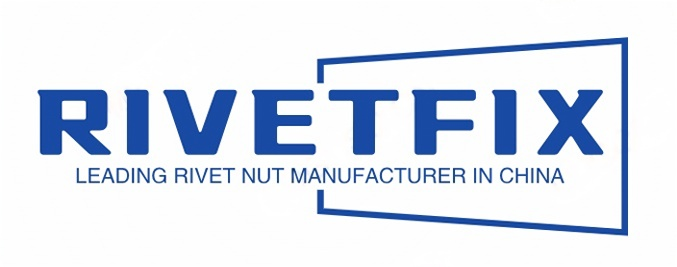
Select Rivetfix to help you with your project
As a leading fastener manufacturer in China with more than 15 years in the industry, Rivetfix are committed to providing first-class quality fasteners and responsive services to the world.
Our factory manufactures 400 million pieces of structural rivets and automobile blind rivets, 1 billion standard blind rivets annually now. We can select the most suitable fasteners according to your project needs, and provide product customization services. Choose Rivetfix for your next project and experience the difference that superior rivet nut solutions can make.
Contact us for project advice and the latest rivet nut quote!
Get High Quality Rivet Nuts Quote!
Send Your Rivet Nut Request
For more than 20 years, Rivetfix has helped customers solve many rivet nuts sourcing needs and technical challenges.
Have a question? Contact us and we’ll provide you with the perfect solution.
